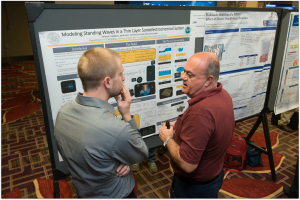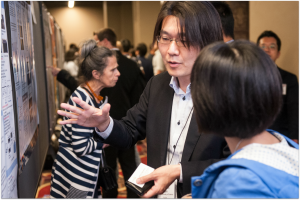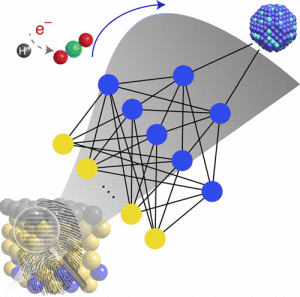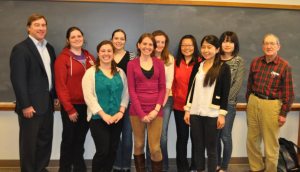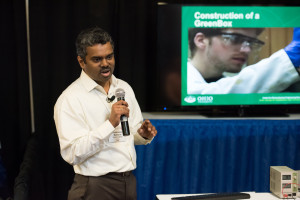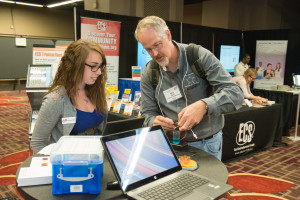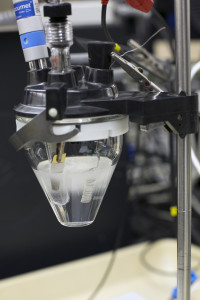
A working cell from Switzer’s research, with gas evolution.
Image: Sam O’Keefe, Missouri S&T.
In order to satisfy growing energy demands, scientists are looking for ways to develop and deploy a broad range of alternative energy sources that can be both efficient and environmentally friendly. At Missouri University of Science and Technology, a team is working to make clean energy more accessible through the development of a cheap, simple way to split hydrogen and oxygen through a new electrodeposition method.
ECS member and head researcher in the project, Jay Switzer, believes that the new development will produce highly efficient solar cells. He and ECS student member James Hill predict the process will be able to effectively gather solar energy for use as fuel, further increasing the amount of hydrogen available for fuel usage.
“The work helps to solve the problem that solar energy is intermittent,” says Switzer. “Obviously, we cannot have the sun produce energy on one spot the entire day, but our process converts the energy into a form that is more easily stored.”
Electrodeposition for Hydrogen
This from Missouri University of Science and Technology:
Switzer and his team use silicon wafers to absorb solar energy. The silicon is submerged in water, with the front surface exposed to a solar energy simulator and the back surface covered in electrodes to conduct the energy. The silicon has cobalt nano-islands formed onto it using a process called electrodeposition.


